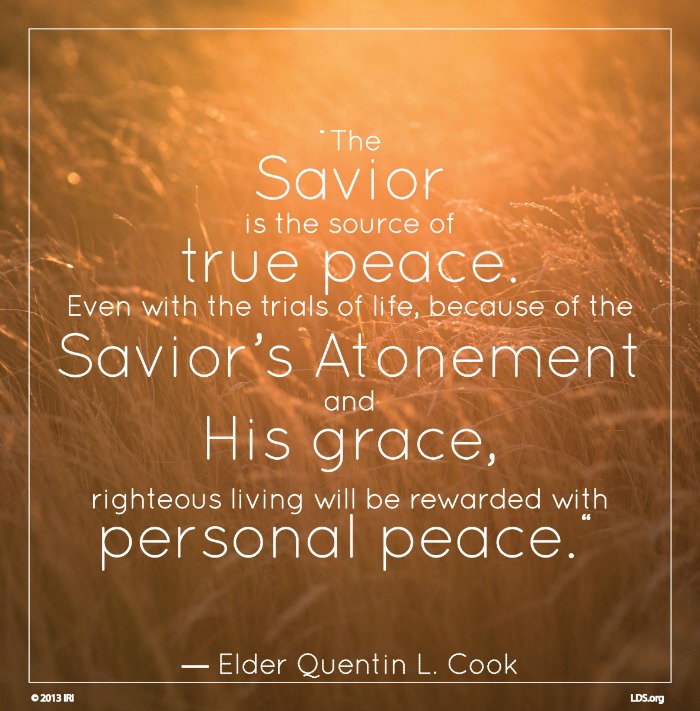Does Your Ward Have “Mean Girls”?
I grew up in a ward that never lacked children my own age. My class changed very little over the course of my Primary years, with many of the girls I befriended as a Sunbeam graduating to Young Women with me. One of my earliest memories is from Nursery, singing Twinkle, Twinkle, Little Star with my childhood friend.
As we grew up, I developed a reputation for being a know-it-all, rattling off the answers to Sunday School questions and leaving everyone in the dust during scripture chases. I was a shameless brown-noser to adult leaders and my friends’ parents. I was often oblivious to the fact that I came across as such a Molly Mormon. In other words, I was a prime target for ridicule.
 My friends didn’t seem bothered by my quirks when we were little, but by the time we were preteens, I began noticing snide comments and sidelong looks. Girls would come to church recounting the fun they had had at a sleepover the Friday before—an activity that, it seemed, everyone had been invited to but me. I eventually became aware that I was a regular topic of discussion among some of these “friends.”
My friends didn’t seem bothered by my quirks when we were little, but by the time we were preteens, I began noticing snide comments and sidelong looks. Girls would come to church recounting the fun they had had at a sleepover the Friday before—an activity that, it seemed, everyone had been invited to but me. I eventually became aware that I was a regular topic of discussion among some of these “friends.”
I was crushed.
It would be nice to think that behavior like this is limited to the schoolyard. Our kids face enough negativity in the world without also having to deal with it at church. It seems almost unfair that our places of worship can often be a source of strife in our lives—I know plenty of adults who have been badly treated by fellow ward members, too. But we aren’t called “saints” because we’re all so saintly. All of us could use a fair bit of improvement.
My parents spent a lot of time helping me to understand that girls of this age often go through a “mean” phase and that I should not take it personally. My mother encouraged me to tell the principal offender how much her actions had hurt me, but stressed that I must never repay these offenses in kind. I often grew frustrated and was tempted to retaliate, but I did my best to follow her advice, naively hoping that things would return to normal.
It got worse before it got better. One of the challenges with bullying is that it sometimes goes “underground.” Girls seem especially adept at a sort of cloak and dagger attack that makes it difficult to pick up on unless you are really looking for it, leaving the victim open to bullying that no one else even realizes is happening.
Though there were plenty of girls who did not participate in the persecution, I had lost confidence and felt like the odd one out. I had wonderful Young Women leaders who, while unaware of my struggles, were supportive and loving. I looked up to them, and their leadership helped me to continue attending church and activities. Still, I prayed every day that the girl who was picking on me would “like me” again.

My prayer was not answered in the way that I envisioned. While this trial persisted, I often felt uneasy at church—at risk of being rejected at any time. However, the insecurity also forced me to rely on Heavenly Father and the Savior. As my relationship with Them grew and I came to know Their love for me, my focus shifted. I became more concerned with pleasing God than with pleasing my peers.
At about the same time, the ward began to see huge growth from new families moving in. More often than not, these new families had girls my age. Many of them came to Sunday School and Young Women with a look of suppressed fright on their faces, watching as all the other girls in class sat close together, chatting and laughing.
Knowing all too well the intimidation of facing a group of aloof, (outwardly) self-assured young females, I made it my mission to reach out to anyone new. I stopped caring about how many friends I had and focused instead on being a good friend to others.

Ironically, the worst of the cattiness died down without my notice—I was too busy making friends with every new girl who came to our ward. The resentment and hurt that I felt as a result of the bullying gradually dissipated. While I was never part of the “in” crowd, I had a few close friends, got along well with everyone, and was very content throughout the rest of my adolescence.
I realize that not every story about bullying is as simple, or has as nice an ending, as mine. I did not endure the trauma of physical attacks or the torture of cyberbullying. My suffering was also relatively shortlived. Those who are abused, ridiculed over the internet, or suffer years upon years of torment have my deepest sympathy.
However, I believe that the lessons I learned from my experience with bullying are invaluable to anyone faced with a similar situation.
1. Choose how you will respond

Our own choices are the only things in life over which we have any control. I erroneously believed that prayer would change my circumstances, not yet understanding that trials and discomfort have a positive purpose in our lives. As long as I held on to hope that someone else would change in order to make life better for me, I remained vulnerable to the whims of my peers and allowed their treatment of me to determine how I felt.
This is not to say that the answer to bullying is to ignore it. Bullying should be addressed, openly talked about, and prevented as much as possible—especially in cases of physical aggression. Telling my bully how her behavior impacted me was an important step, but it didn’t stop her from continuing to subtly put me down in other ways. Even adult intervention isn’t always enough—my parents’ efforts on my behalf elicited little response from the bully’s parents.
It was up to me to decide how to respond to the negativity. With my parents’ encouragement, I resisted the urge to be similarly unkind or engage in gossip. By no means was I the perfect child, but I did not turn from victim to victimizer.
2. Focus on your relationship with the Savior

Just because hardship is a part of life doesn’t mean that we must go through it alone. Our experiences are meant to bring us closer to, and help us become more like, the Savior. Stay close to Him and Heavenly Father through prayer, fasting, and earnest study. Their love is a better gift than any other friendship—and it has no strings attached.
It was also my relationship with the Savior that gave me the most healing. Those who were unkind to me never really attempted to repair their wrongs, but the Atonement helped me overcome the pain and anger that I felt. As that relationship blossomed, my sense of my own worth and value grew. Because it was rooted in God’s love, my confidence was unaffected by what others thought, said, or did. Their rejection might sting, but I knew that God’s love for me would not change.
3. Stop worrying about yourself and serve others
 This is one of those paradoxical gospel principles that doesn’t immediately make logical sense, but which is true nonetheless. While I was focused on whether others were nice to me, or whether I was included, or whether I was liked—I was miserable. As I began to look for and reach out to other “outsiders,” I discovered that I had the power to add to other people’s happiness.
This is one of those paradoxical gospel principles that doesn’t immediately make logical sense, but which is true nonetheless. While I was focused on whether others were nice to me, or whether I was included, or whether I was liked—I was miserable. As I began to look for and reach out to other “outsiders,” I discovered that I had the power to add to other people’s happiness.
I cannot describe the joy that that simple truth brought to my life. My confidence continued to grow not just because I made new friends who were kind, honest, and caring. More than anything else, I realized that I could be a force for good in the world.
So if mean girls are making life at church hard for you, remember that they have no say in who you are or how much God loves you. Understand that they are probably fighting their own personal battles. Get to know the Savior, and look for ways to share His love with everyone around you.
Like me, you might just look back one day and be grateful that you had mean girls in your ward.


